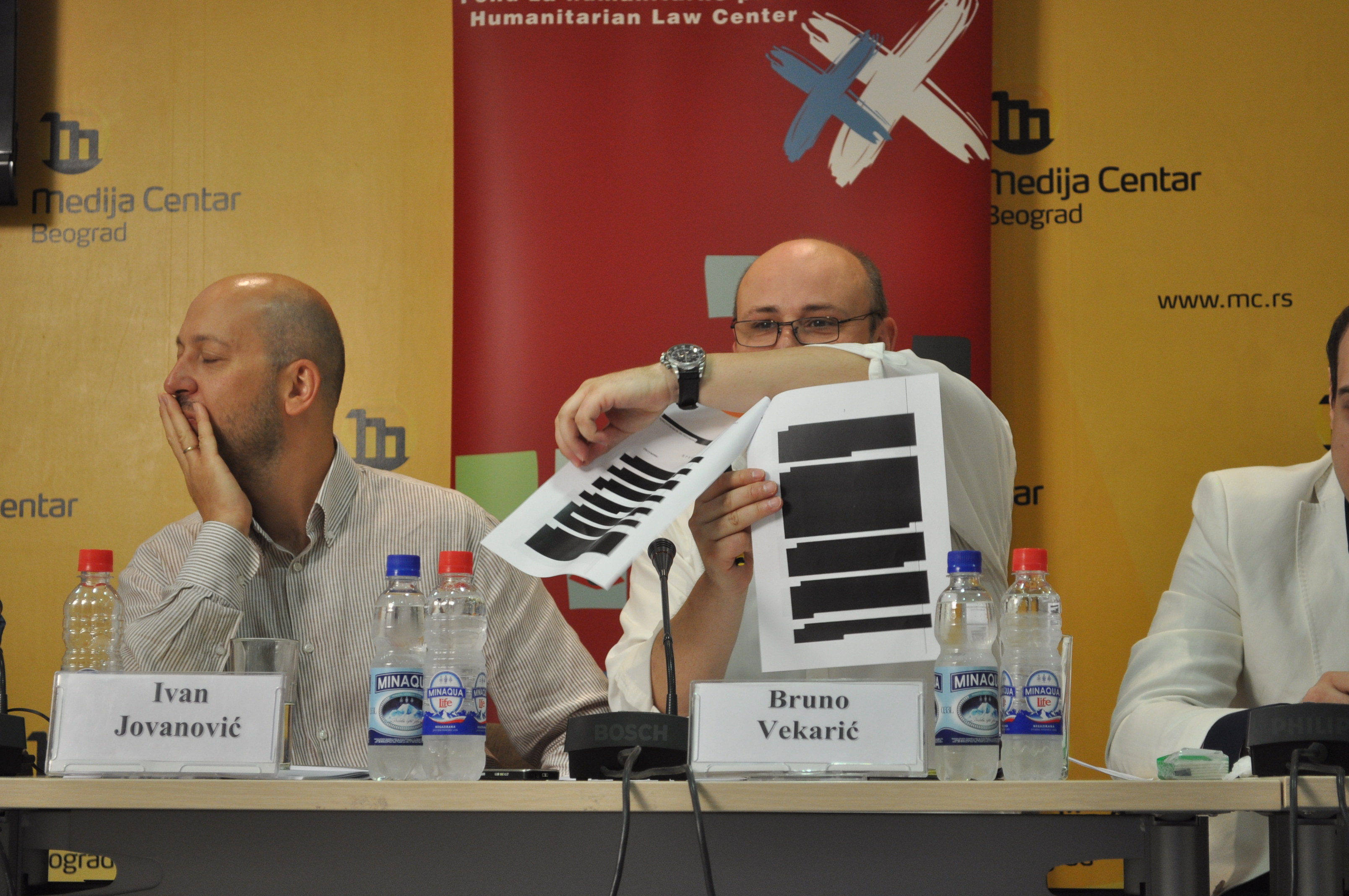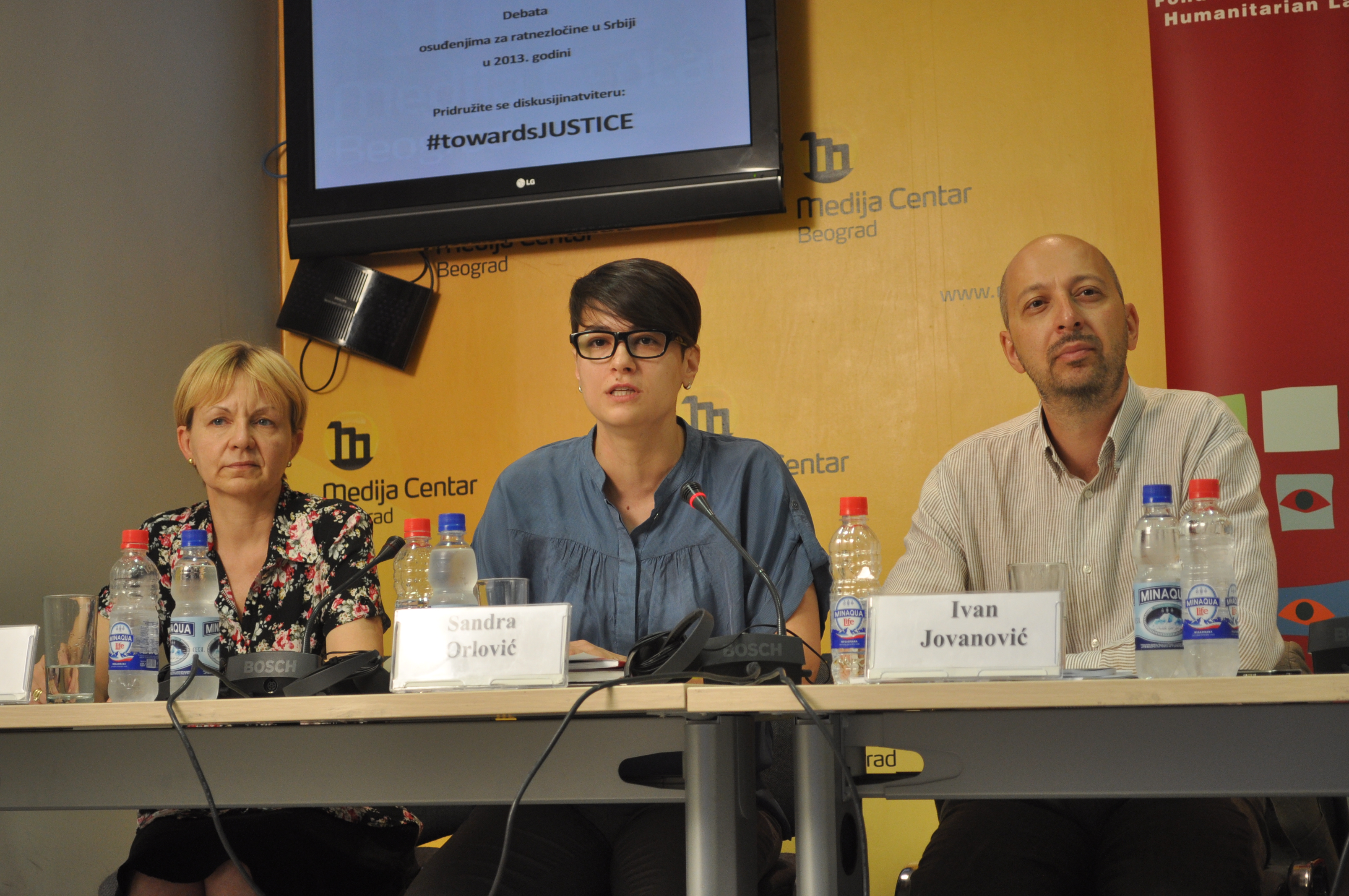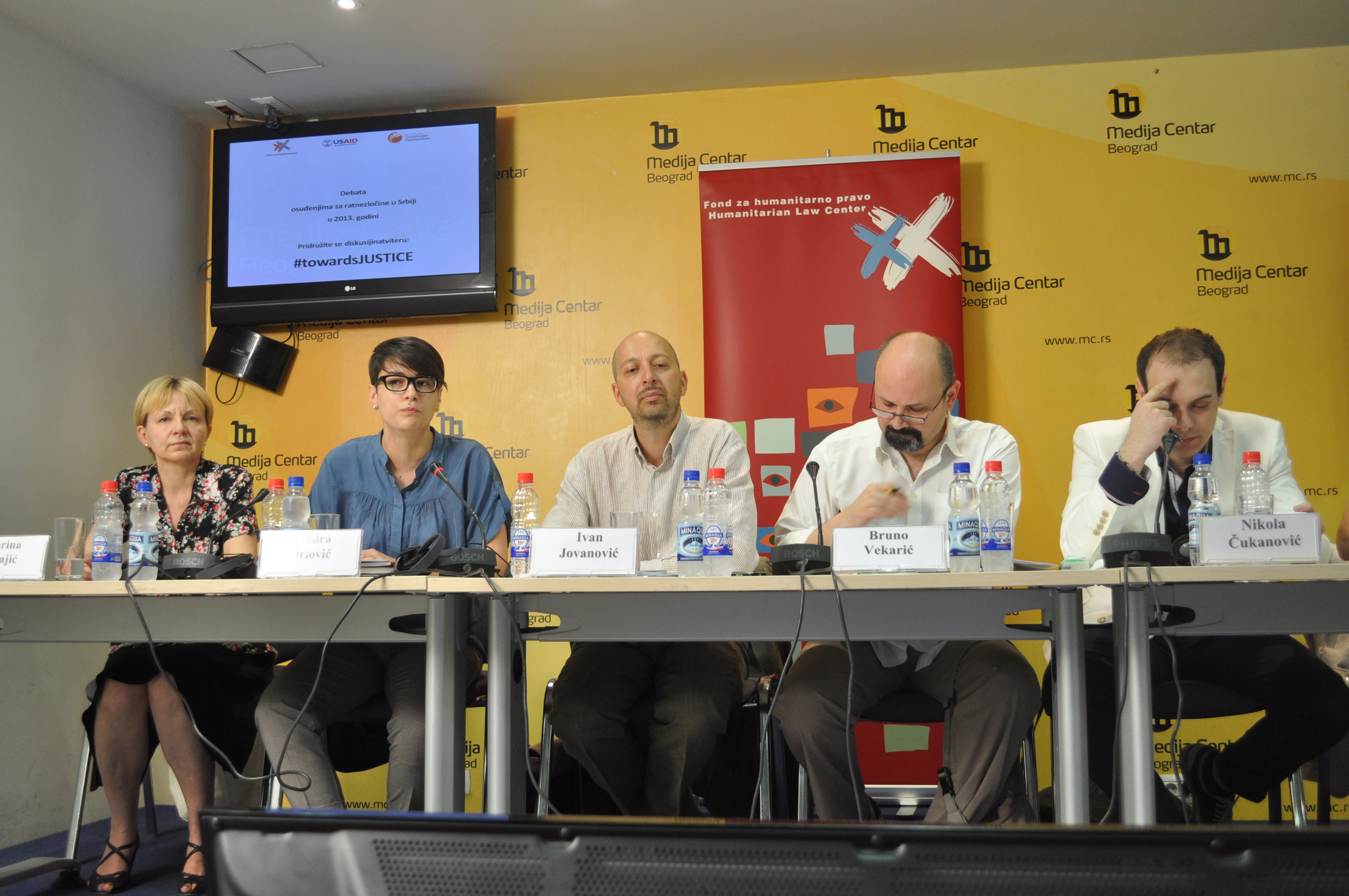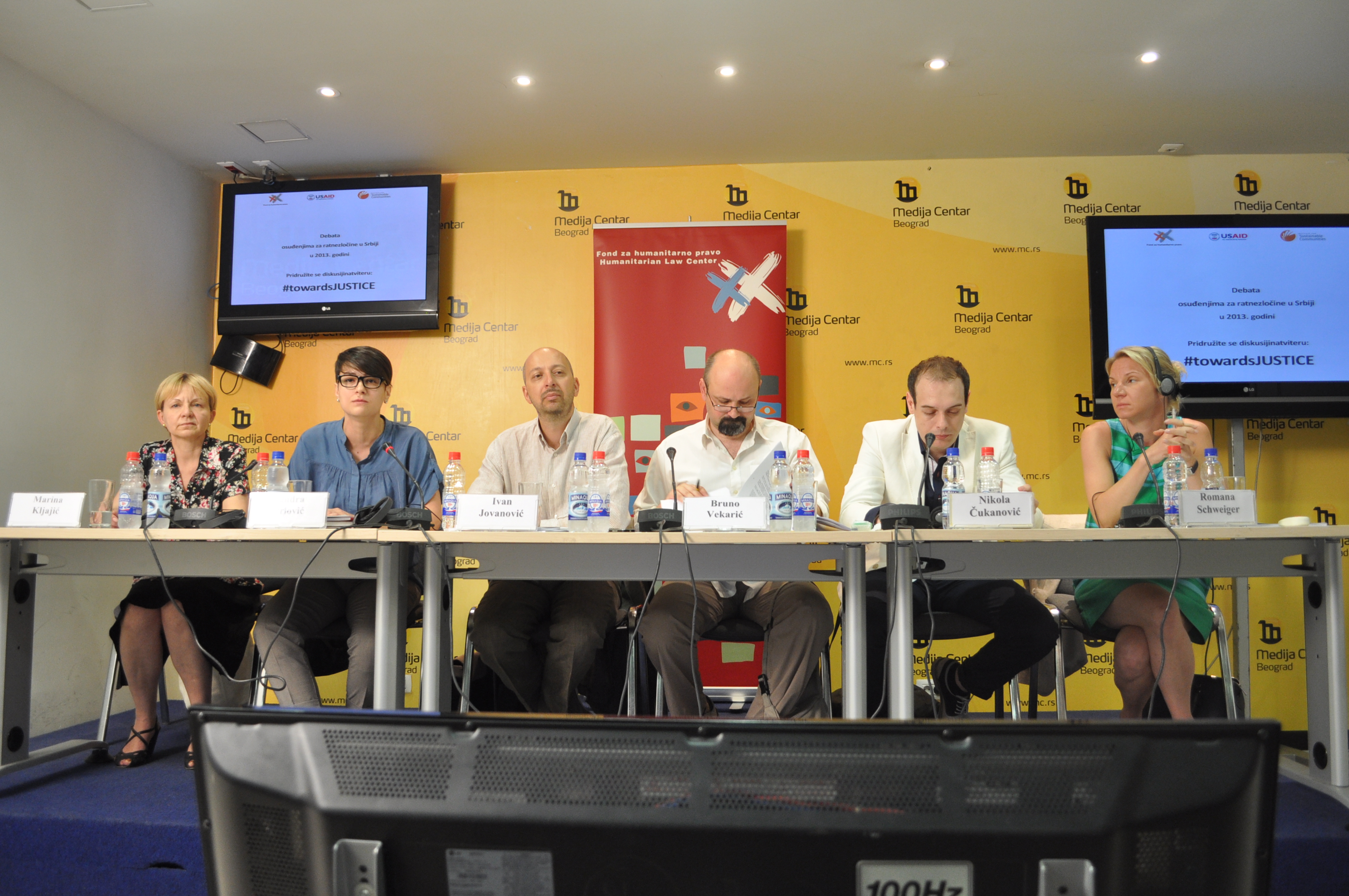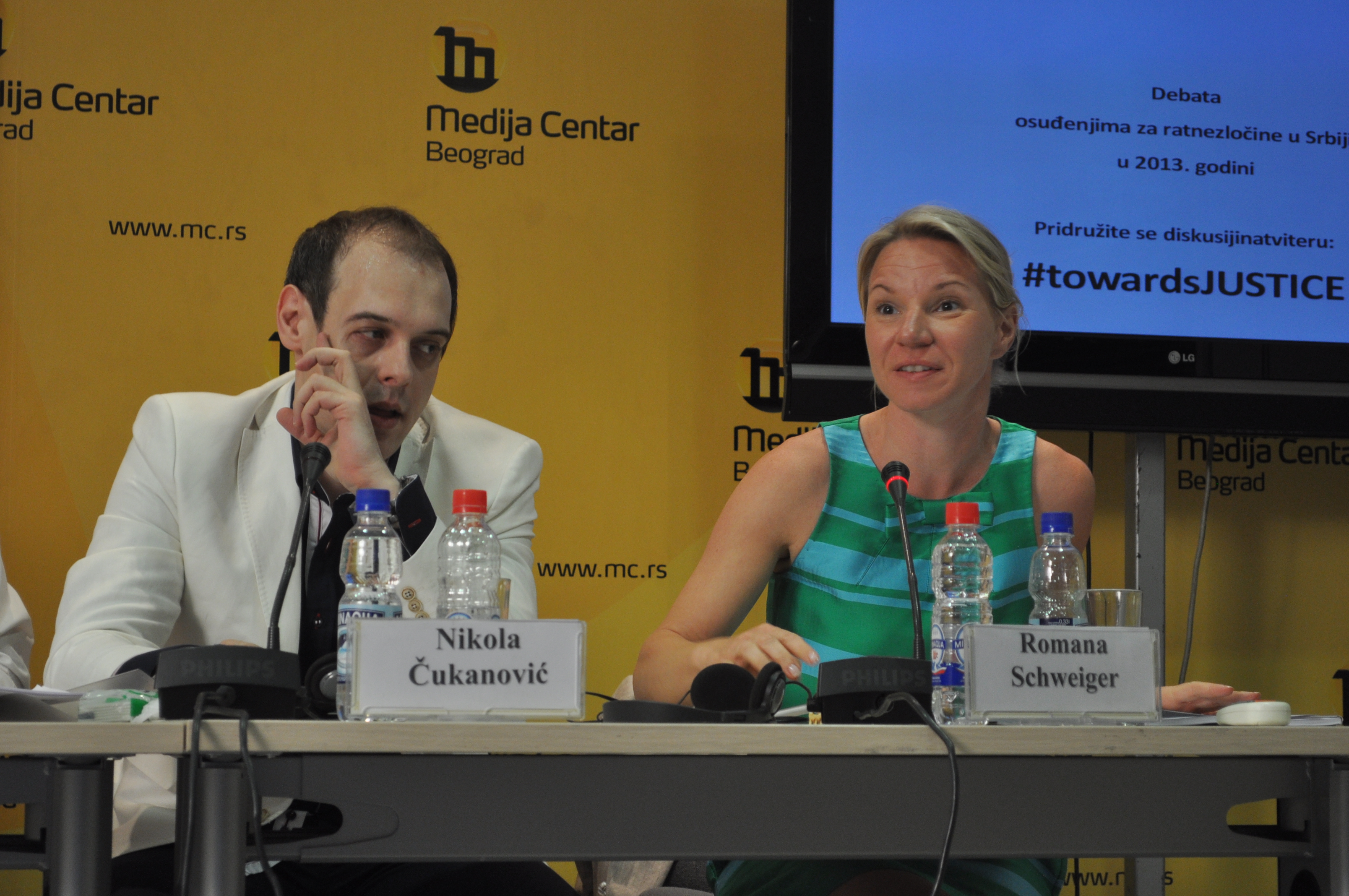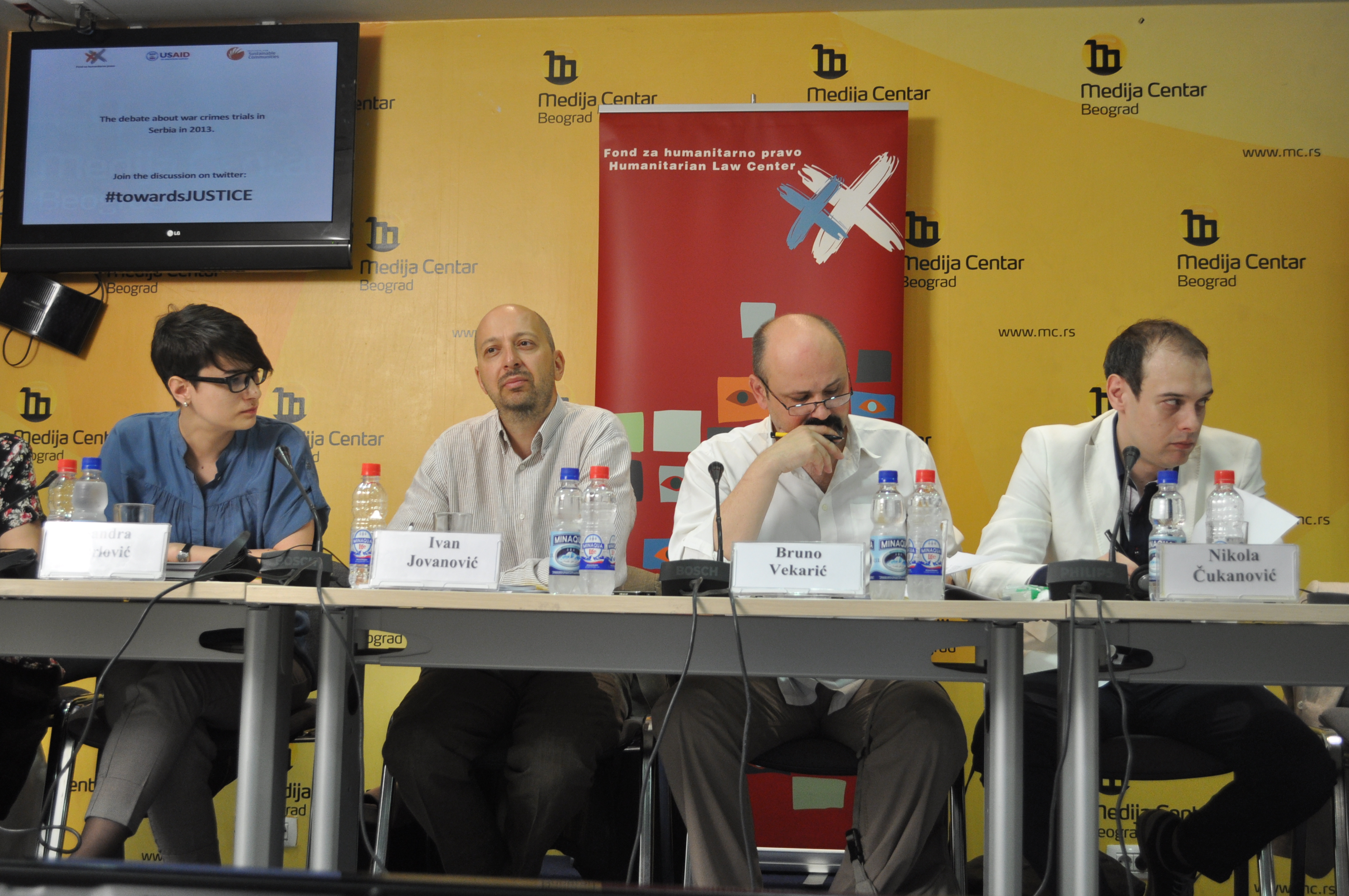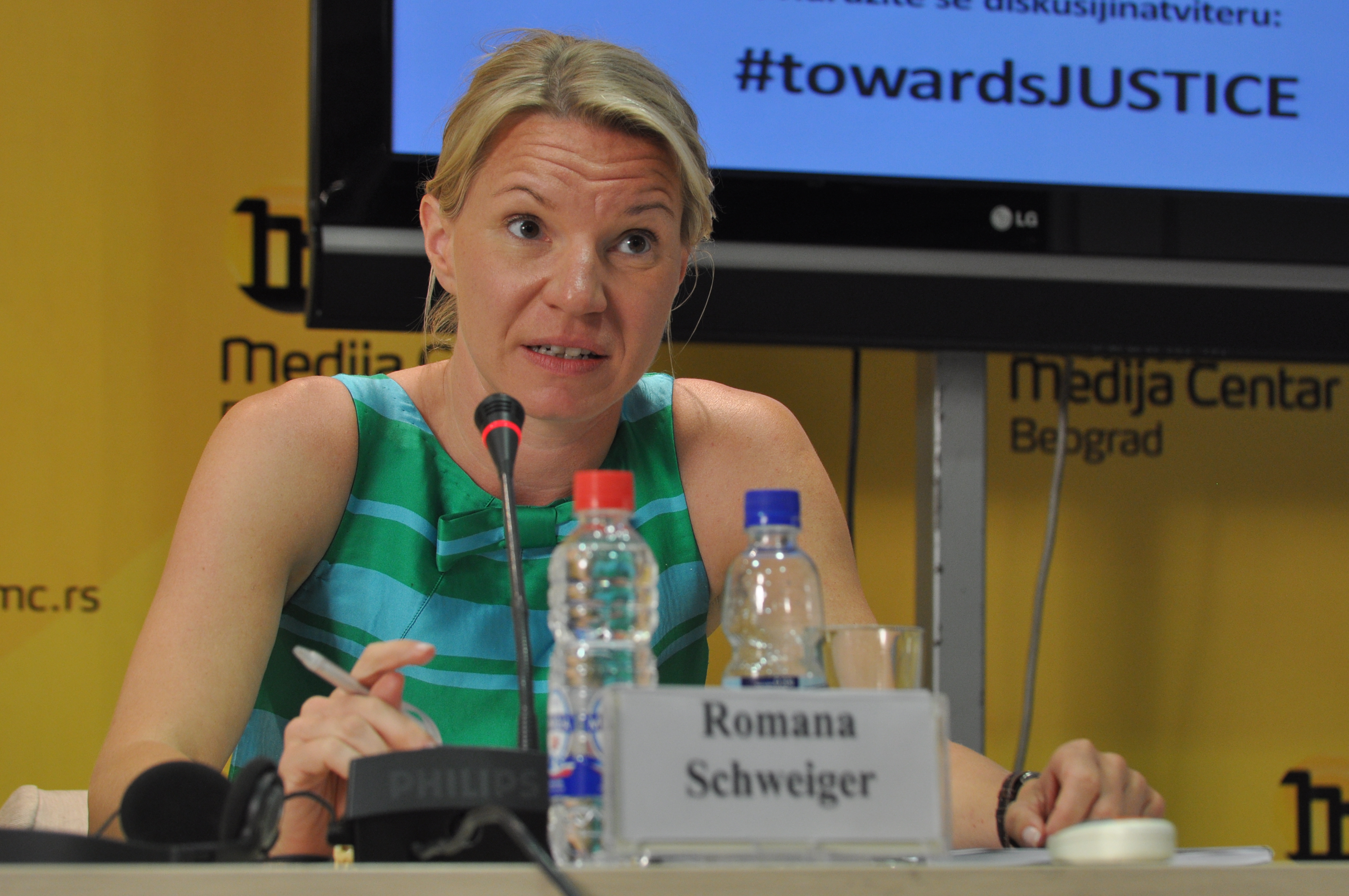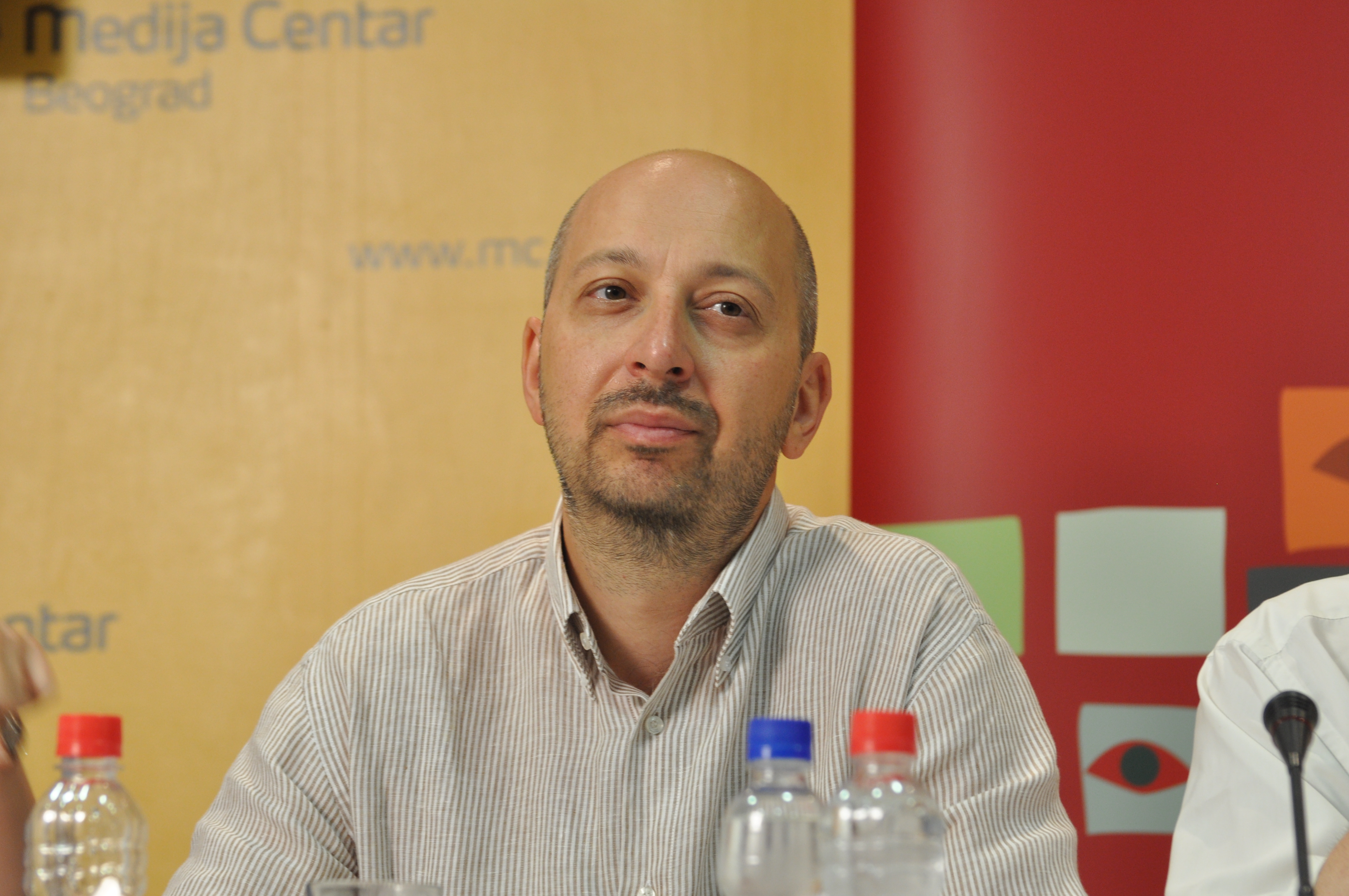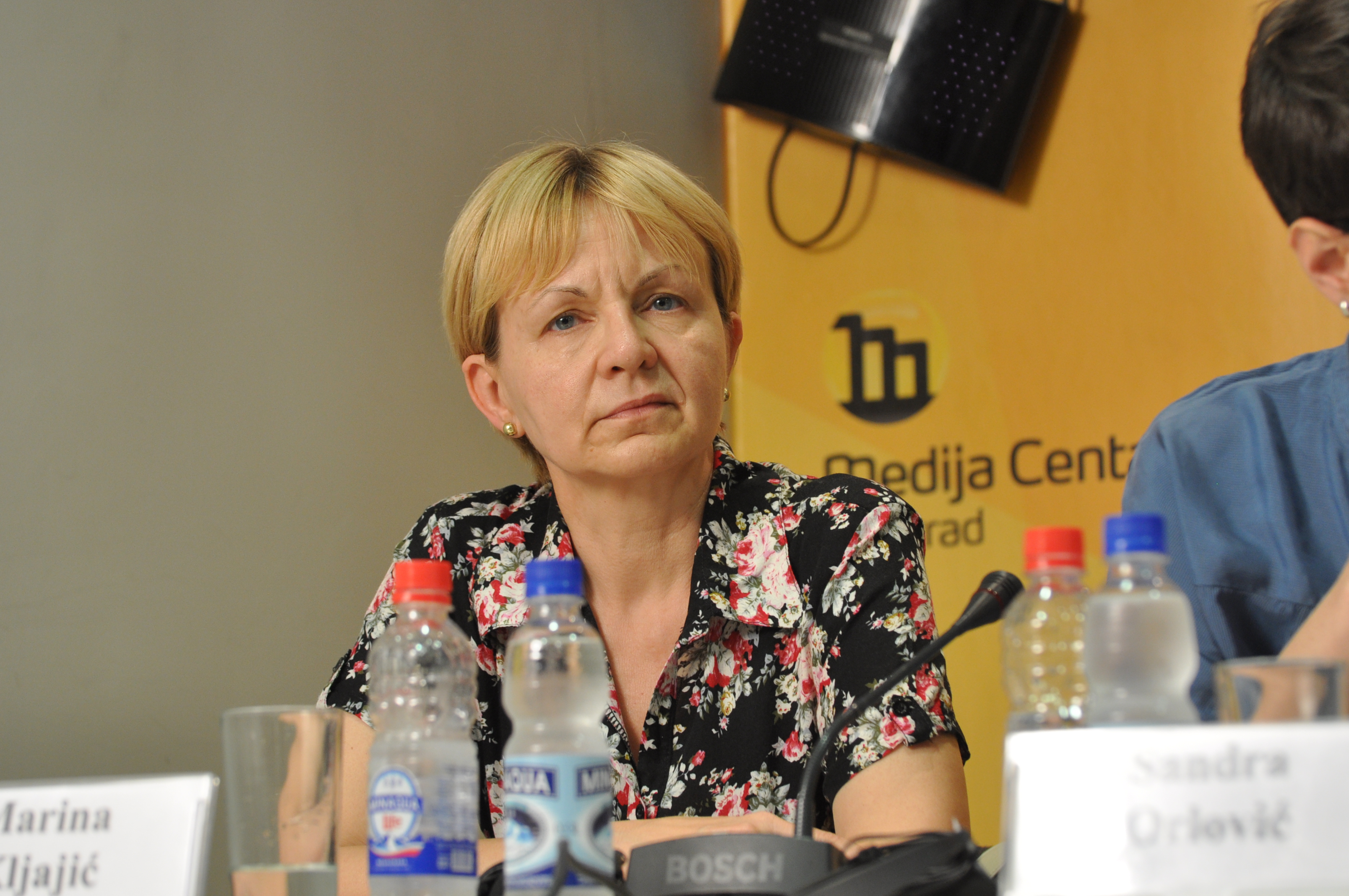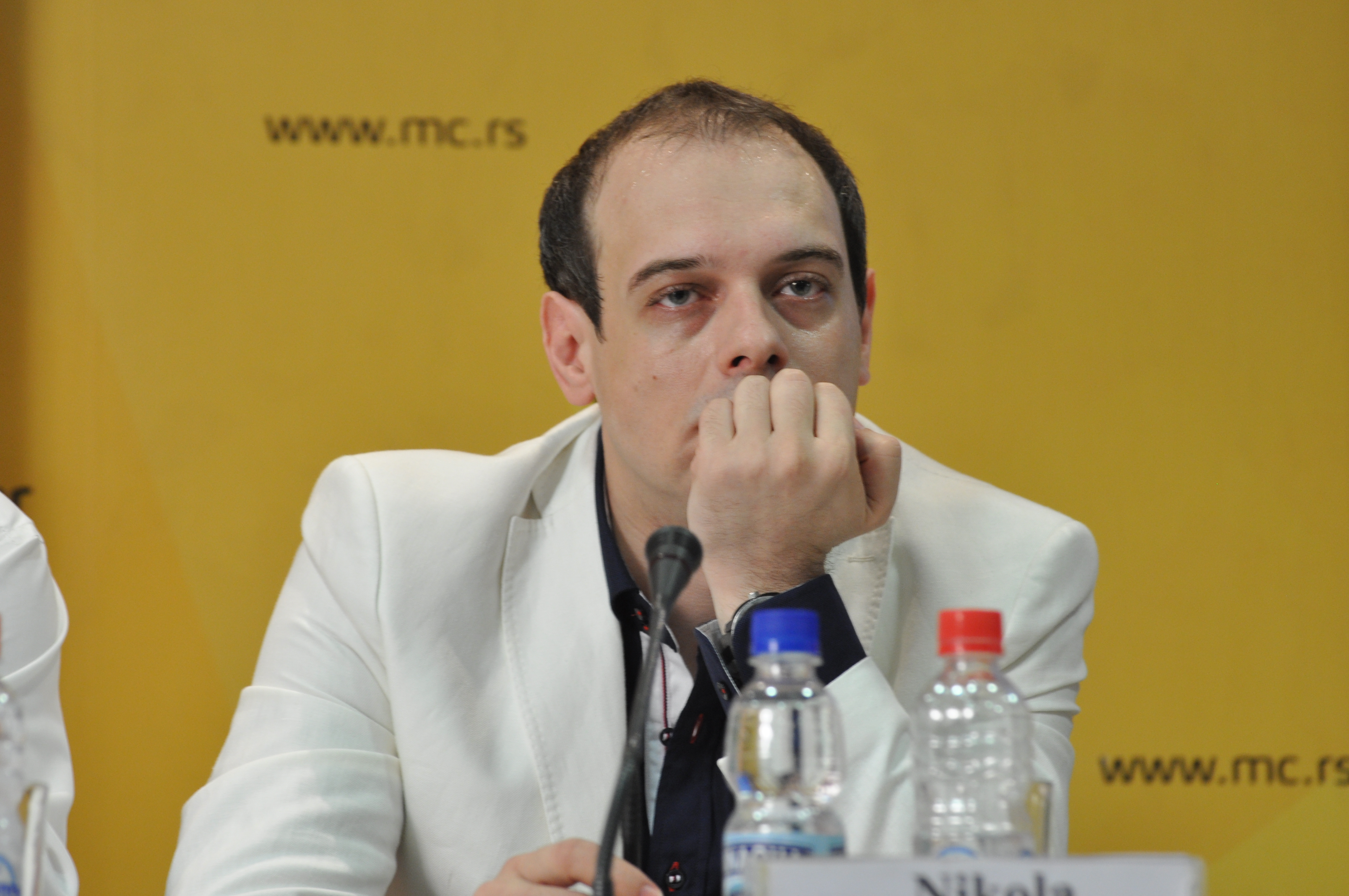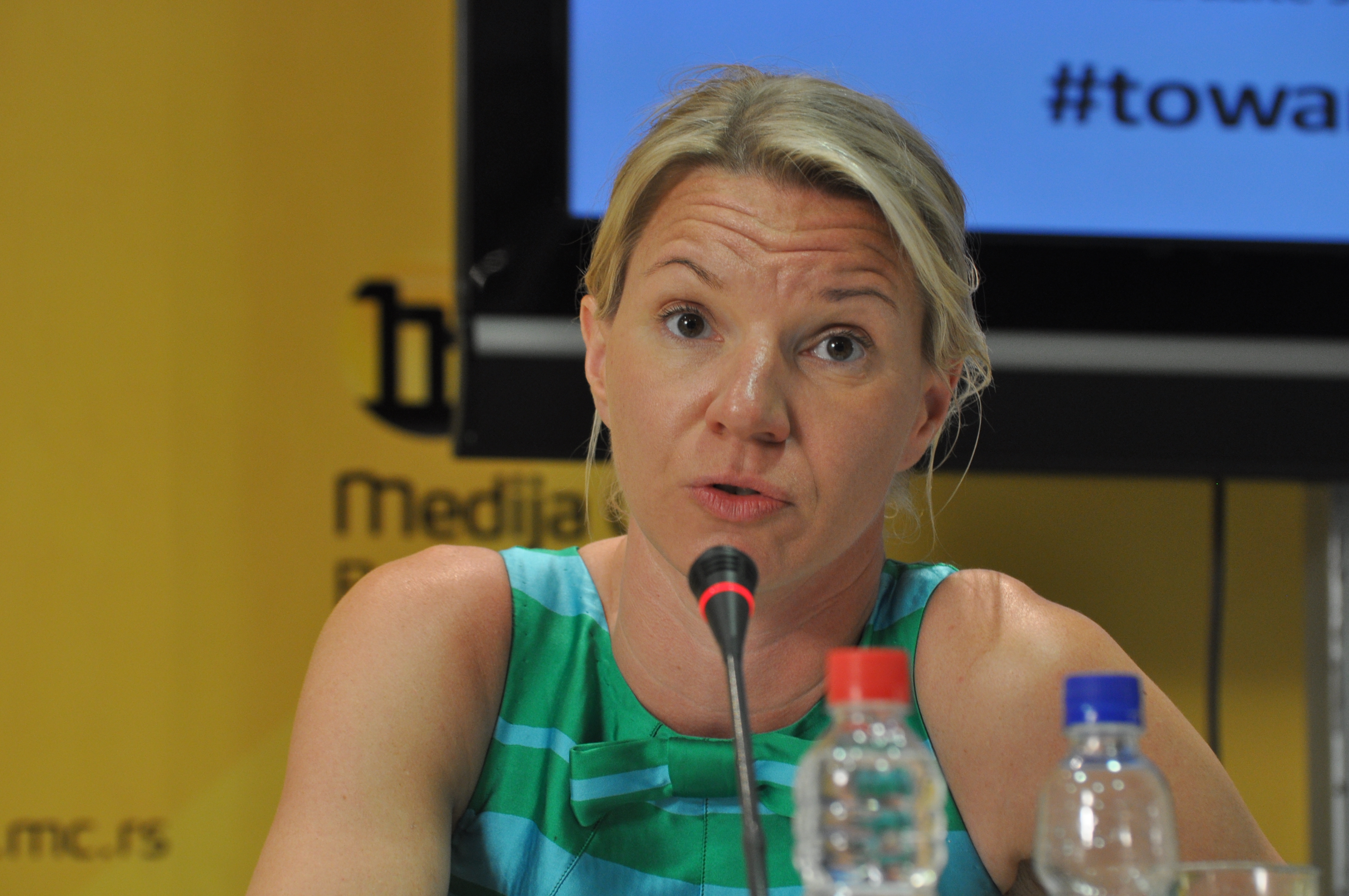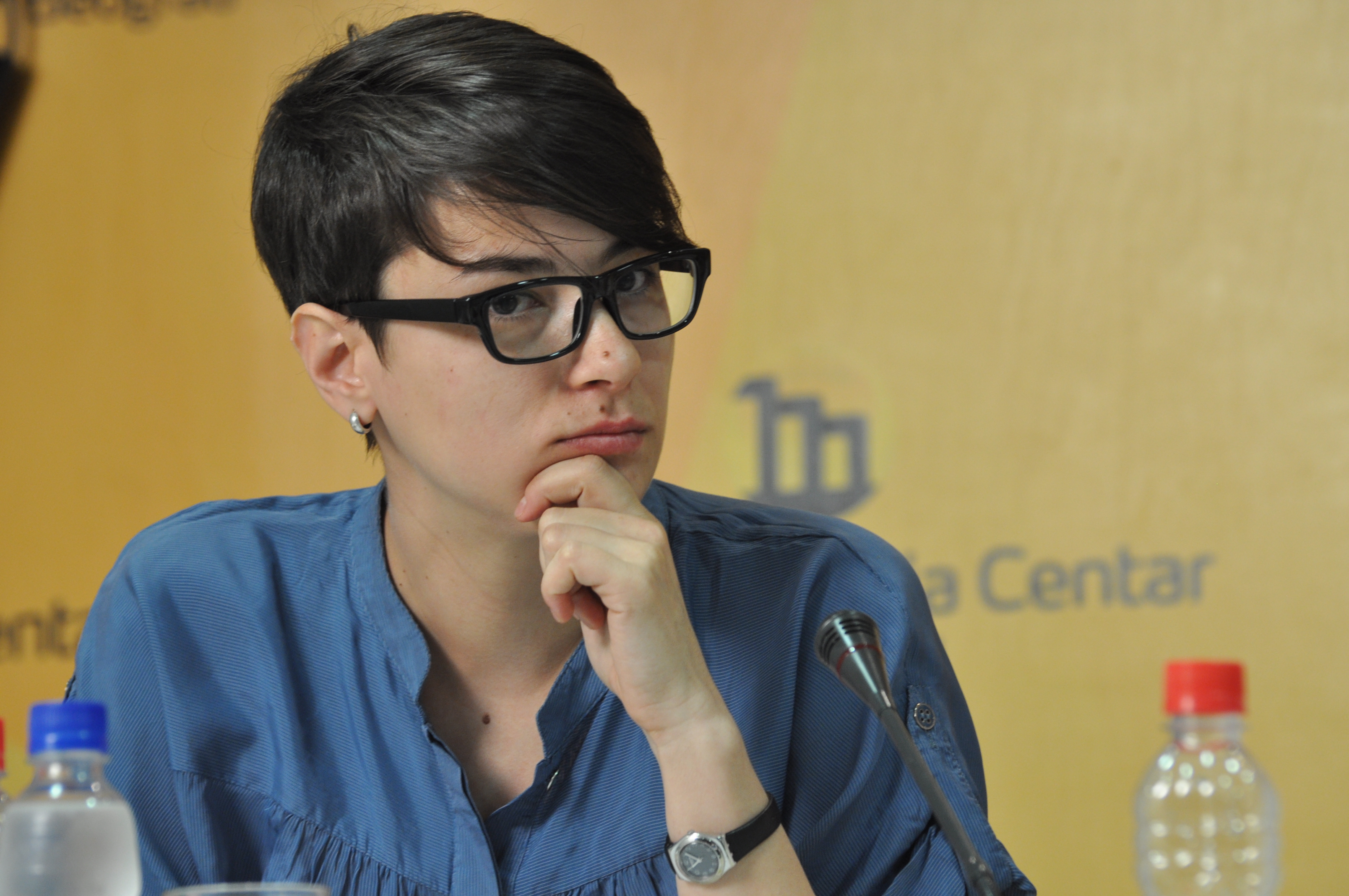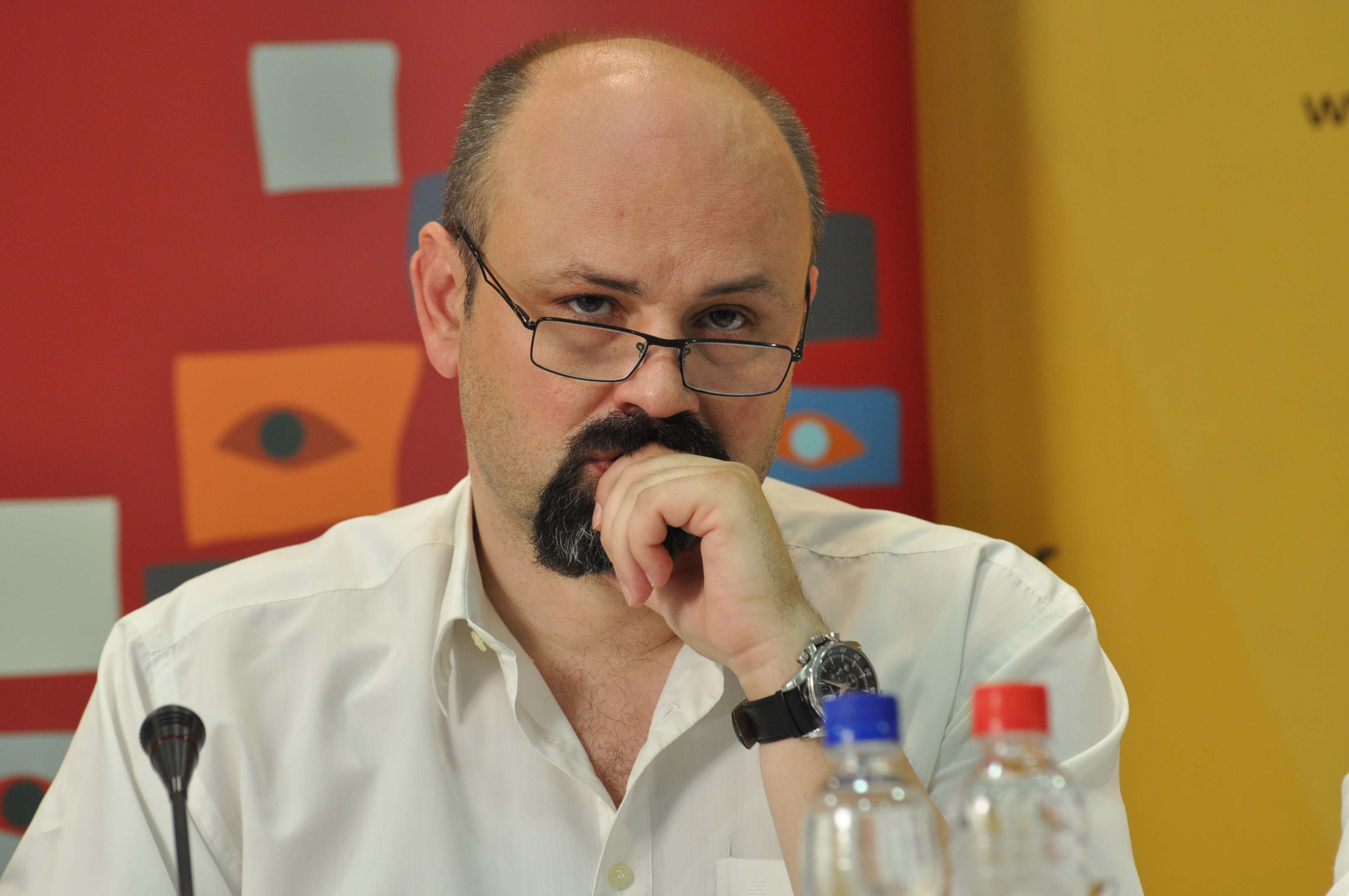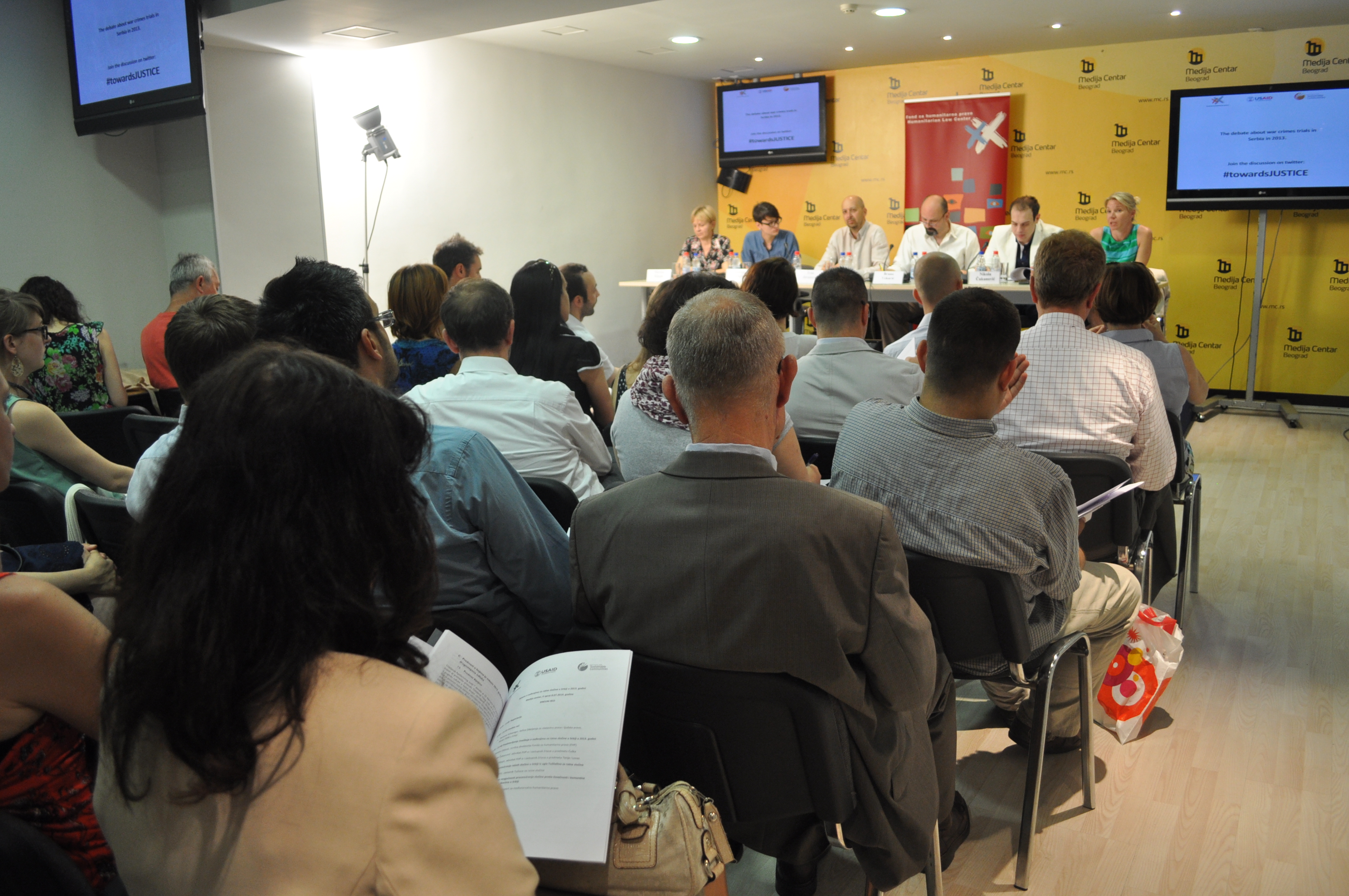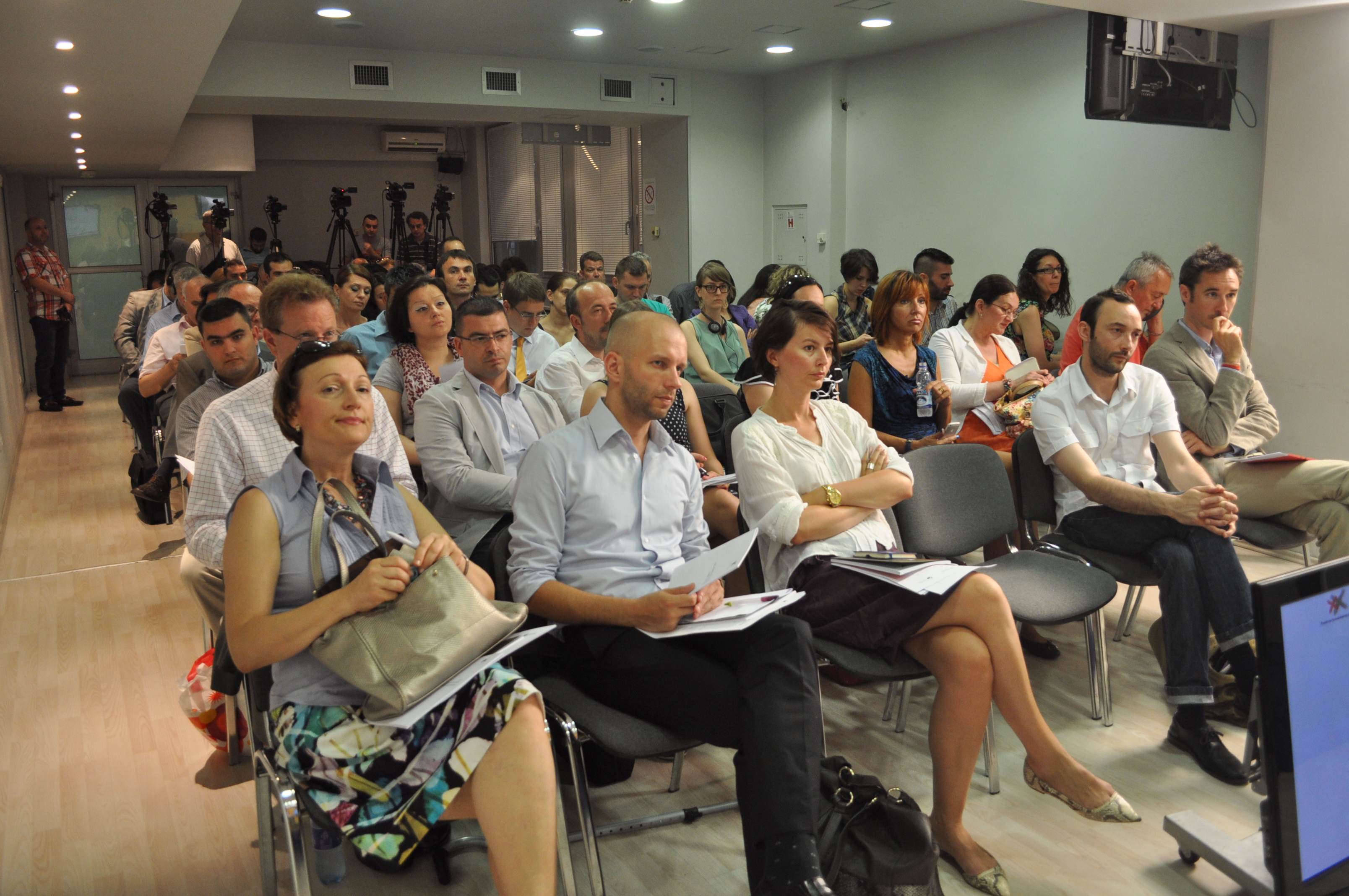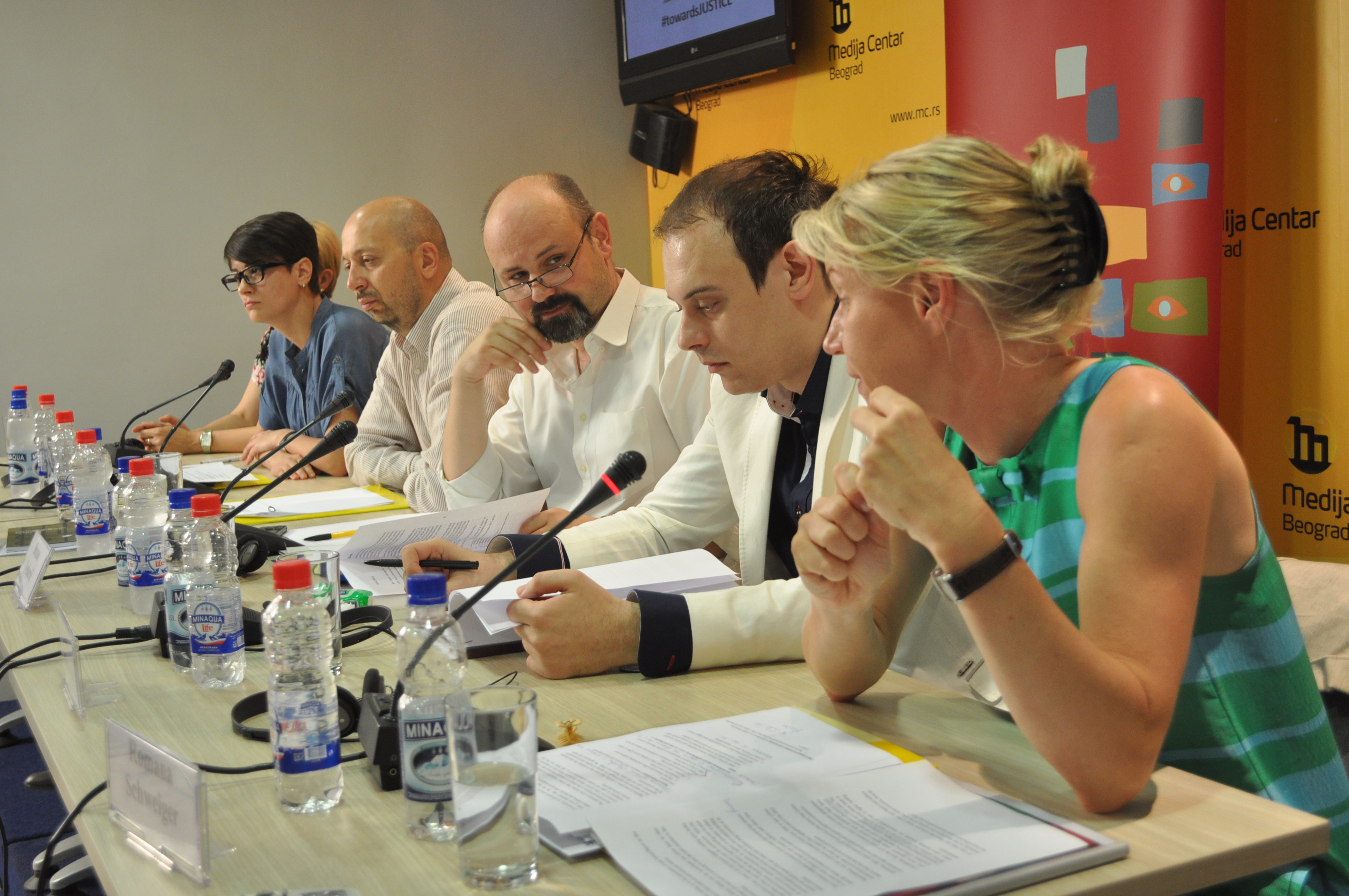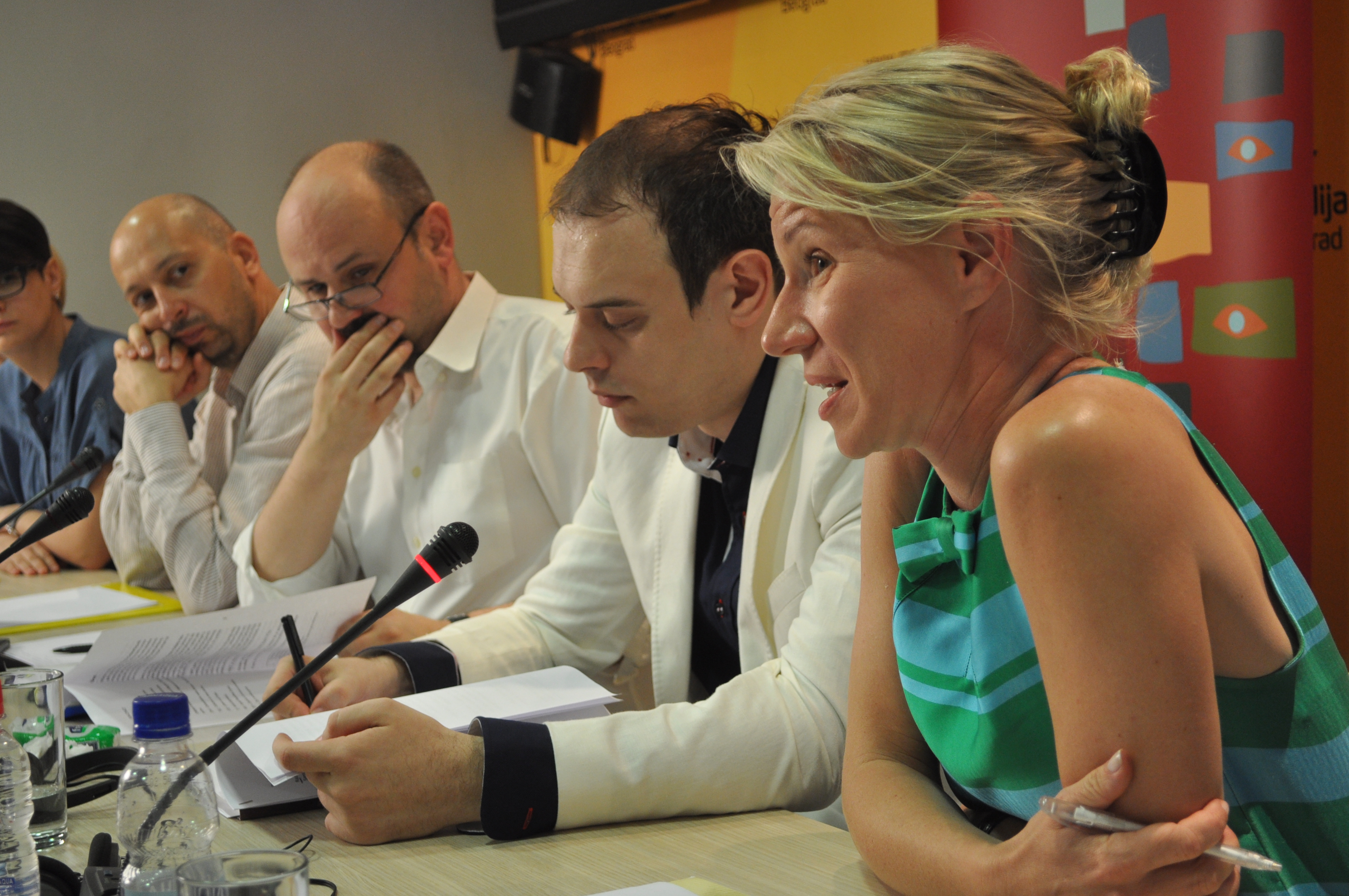Presentation of Report on War Crimes Trials in Serbia in 2013, and ensuing Debate
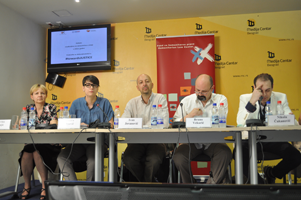 On Tuesday, July 8th 2014, the Humanitarian Law Center (HLC) presented the Report on War Crimes Trials in 2013 and held a debate on the main findings of the report. The report is based on the monitoring of war crimes proceedings carried out before the War Crimes Department of the Higher Court in Belgrade, the War Crimes Department of the Court of Appeal in Belgrade and the courts of general jurisdiction in Požarevac, Niš and Prokuplje.
On Tuesday, July 8th 2014, the Humanitarian Law Center (HLC) presented the Report on War Crimes Trials in 2013 and held a debate on the main findings of the report. The report is based on the monitoring of war crimes proceedings carried out before the War Crimes Department of the Higher Court in Belgrade, the War Crimes Department of the Court of Appeal in Belgrade and the courts of general jurisdiction in Požarevac, Niš and Prokuplje.
The main findings of the report were presented by the HLC Executive Director Sandra Orlović.
Opening the debate, the Head of the Rule of Law and Human Rights Department of the OSCE Mission to Serbia, Romana Schweiger, pointed out that the prosecution of war crimes is important regardless of the length of time that has passed since the crime was committed, and that, in view of this, Serbia’s obligation to prosecute those responsible for war crimes is an abiding obligation. Bearing in mind that with the passage of time the witnesses and victims also disappear, it is essential to prioritize and prosecute those cases considered to be the most important. In overcoming impunity, the first and foremost step is to establish and deepen regional cooperation, to prosecute high-ranking perpetrators and to develop the criteria for prioritizing cases.
The HLC attorneys and representatives of the victims in the Tenja, Lovas and Ćuška/Qushk Cases, Marina Kljaić and Nikola Čukanović, illustrated the findings of the Report using the trials in the Lovas and Ćuška Cases as examples.
In the Lovas Case the Office of the War Crimes Prosecutor (OWCP) did not indict those who were most responsible, despite the existence of clear evidence that they ordered the commission of the crimes. In addition, the judgment of the Court of Appeals in overturning the first instance judgment is short, insufficient and contradictory, and does not give a clear explanation of the reason for overturning the first instance judgment. From the standpoint of achieving justice, the very duration of the proceedings is questionable, considering that five years after the initiation of proceedings, this judicial process is back to square one. The result of this is that the victims have lost faith in the justice and institutions of the Republic of Serbia, from which they expected the punishment of the perpetrators and an at least partial satisfaction for the pain and suffering they endured.
In the Ćuška/Qyshk Case, despite the judgment announced, the truth has not yet been clarified. It is not known who were the organizers of the crime, nor what was the role of the police, and the prosecution of high-ranking perpetrators was avoided. In this case, there were problems concerning witness protection, because one of the witnesses was threatened by members of the Ministry of the Interior Witness Protection Unit, who were responsible for the protection of this witness.
Deputy War Crimes Prosecutor Bruno Vekarić said that the Report on war crimes trials in 2013 is objective, that it contains some legitimate remarks. Furthermore, he added that some of the main reasons for such findings were insufficient capacities of the OWCP and the complexity of cases.
Prosecutor Vekarić announced new prosecutions for the Istok, Srebrenica and Štrpce Cases, as well as an increase in the number of indictments and the prosecution of high-ranking perpetrators.
He also believes that regional cooperation is the key to progress in the prosecution of war crimes, because these are crimes that have an international character and the protocol on cooperation accelerates communication and the exchange of documents.
In the field of witness protection there has been visible progress, and the recent personnel changes in the Witness Protection Unit are encouraging. In addition, the new Criminal Procedure Code provides for the transferal of this unit to the jurisdiction of the OWCP, which is what this office has supported all along.
Finally, regarding the anonymity of judgments, Prosecutor Vekarić said that the OWCP thinks that the judicial authorities have an interest in informing the public about what was happening in the wars in the former Yugoslavia, because that is the only way to eliminate doubt, denial and negation.
Ivan Jovanović, an expert on international humanitarian law, provided arguments that both crimes against humanity and the institute regarding command responsibility can be applied in the Serbian legal system, because there are valid legal grounds for both. Both of these institutes are provided for in international regulations, which have been signed by Serbia and applied by its government, in accordance with its Constitution. Additionally, these institutes contribute to the fight against impunity for committed war crimes.
Since it is broader than the war crime, because it includes a widespread or systematic attack on a civilian population and is not limited to events of war, the crime against humanity can be very useful in the prosecution of crimes that cannot be subsumed under a war crime, either because they occurred after the official end of the conflict or outside the territory where the conflict was happening.
Regarding the institute regarding command responsibility, Serbia has the unquestionable right to use it, primarily as the direct application of international law, but also through the institutes regarding complicity and aiding and abetting, which are already built into the domestic legal system.
The Report can be downloaded here.







